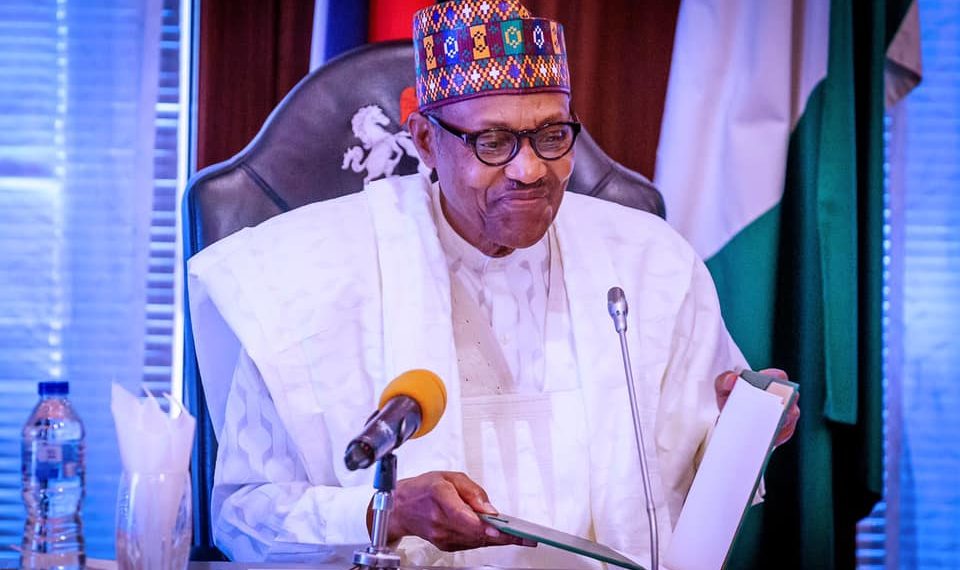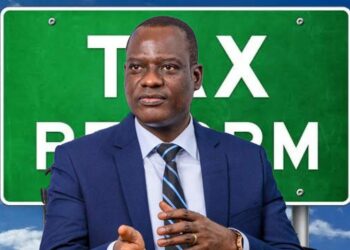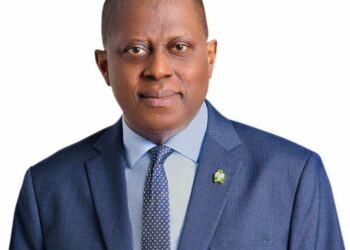The lack of a sustainable development agenda since the 1980s to date may be costing the Nigerian economy the kind of development strides needed to keep the country on a linear growth path, NATIONAL ECONOMY reckons.
“This is in contrast to sustained development plans countries like China have stuck to, which have paid off more than 40 years and counting.
Taking a cue from the shining economic star, which, since the days of Premier of the Chinese National Party, Deng Xiaoping, embarked on sustained five- year economic development plans with success stories, some economists have indicated that Nigeria should adopt sustained plans for development.
This is in the spirit of sustained economic policies that are not subject to flip flops due to regime change.
During its inchoate stages, Nigeria had development plans that had certain successes, starting with a pre-independence 10-year period from 1944, and then post-independence 1962.
Nigeria’s post-independence national development plans, although wrought by civil war, oil doom, and political instability, fine-tuned Nigeria’s developmental trajectory in terms of human and infrastructure capital, in the opinion of notable economists and academic institutions.
Head of Economic Associates and Lecturer at Lagos Business School, Dr. Ayo Teriba, said the first four national development plans were largely successful. He points to the massive construction of roads, bridges, universities and other infrastructural development projects as evidence.
He said the fact that there has not been any development plan after the Fourth National Development Plan points to the reason why there has been infrastructural decline since the 1980s.
Development economists said development is a multi-dimensional process involving changes in structures, attitudes and institutions as well as the acceleration of economic growth, the reduction of inequality and eradication of absolute poverty. There is no doubt successive governments in Nigeria strived to achieve that.
Planning is deciding what actions to be taken in the future for the purpose of achieving organizational goals. It involves thinking ahead, initiating and taking a predetermined course of action and deciding in advance what should be done, how, when and by whom. Without planning, the activities of organizations, institutions, societies and nations may well become a series of random actions with meaningless objectives.
Alluding to those standards, Dr. Teriba said a series of actions, with time frame and specific organisations to implement plans are necessary for the success of development plans.
He said Nigeria needs development plans now because a plan accords a country the opportunity to take stock of its progress, compare itself with peers, and serves as a guide.
“There is a need to plan because much of what you do today as a country depends on how you get other people to identify and buy into your plan for investment purposes. Others need to see their future in your plan,” he said.
He further stressed the need to plan to adapt skills to modern realities.
The CEO of the Center for the Promotion of Private Enterprise (CPPE), and former director general of the Lagos Chamber of Commerce and Industry (LCCI), Dr. Muda Yusuf said Nigeria has no shortage of national development plans as there is currently a development plan being pursued. He cautioned, however, that there is poor implementation of development plans in Nigeria.
Citing an example, Yusuf stated that in the current national development plan there is a position on the management of foreign exchange as a major macroeconomic objective but no one is following it.
The chief executive of Anthill Concepts Limited, and member of the Board of Economists, NATIONAL ECONOMY, Dr. Emeka Okengwu, noted that Nigeria had been having national development plans pre-independence, from 1944, citing that the 10-year period from that year was the heyday of Nigerian exports in products such as cocoa, groundnuts, palm and timber.
Okengwu stated that it’s not that Nigeria has not had national development plans over the years, but had not interrogated the roots of why they were faulty.
He said gleaning from the experience of China, the first thing that country did was to control its population, which it knew it had a serious problem with. He added that China made sure the statistics were right so that the government would know how many people it was lifting out of poverty and where.
Okengwu said one of the major problems Nigeria has is that the population is growing much faster than the economy. He thus stressed that having the right statistics would be at the core of any development planning Nigeria wants to embark upon, otherwise it won’t work.
He said the second thing China did right was to start applying technology and human resources into human capital. He however deplored the fact that there are not many institutions in Nigeria to turn human resources into human capital. He said the first positive thing to do to develop is to identify the human resource the government wants to add value to using the technology the country has acquired to develop the people.
He added that it’s also important to do proper study to identify the country’s natural resources. He stressed that if Nigeria had a good plan to show using timelines, how the country would convert the resources into wealth, the agricultural products into industrial inputs, arable land into input belts, every investor would like to be here to push the country’s development plan.
He said Nigeria needs to rework its development plan towards being able to play in the international market.
A renowned economist, Tope Fasua, said Tope Fasua agrees that there is a need to plan even today. He stressed the need to understand why previous plans did not succeed.
Fasua noted that in any future plan the government needs to make it law and insert clauses in that plan to ensure continuity and make future governments suable if they fail to ensure that continuity.
Fasua said Nigeria’s development plans in the past did not succeed. He pointed to the short-term nature of the plans as their foundational undoing. He also pointed to the fact that Nigeria, for most of her development plans, was under military regimes that were largely unstable. He also pointed to policy somersaults and abandonment of projects that feed into the plan in a same regime as part of the plans’ very foundational fault lines.
Fasua also pointed out that some of the plans were aloof in nature and estranged from economic development principles. He said they were calibrated to achieve short term growth so that the government in power could shine at the moment.
He alluded to the fact that in the mid-1980s Nigeria was urged to jettison planning and depend on market forces, which plunged the country into deep trouble.
A development economist at the Lagos Business School, Dr. Bongo Adi, also agreed that there is need for a national plan but cautioned that such plan must be based on technological realities.
He said a national plan today must neither be based on a big push scale, nor constant return scale but on increasing return scale.
He said in the past Nigeria has been too slow to catch up, even though leap frogging in this age of technology is possible.
He also cautioned that any plan should not be spearheaded by people who are not in tune with what modern technology has to offer.
Dr. Bongo Adi rates Nigeria’s erstwhile development plans to be unsuccessful. He said a plan is a guide to the realization of some future objective, which lays out the future achievement of those objectives.
He pointed to the fact that the development plan of the 1960s was built solely to serve the interests of colonialists. He cited that the railways built by the colonialists served the purpose of transporting merchandise to ports for export—they were not integrated.
One of the difficulties perceivable the plans is that it is difficult to give concrete meanings to some of the objectives. Certain of the objectives are not only nebulous, but also are not related to any specific time period, apart from being difficult to quantify and reduce to operational magnitudes. Besides, some objectives are contradictory, and lack evidence of any attempt being made at reconciliation.
In the implementation of objectives, quantification and time phasing become important in the sense that they enable society to gauge the progress being made, as development proceeds, toward achievement of stated objectives, and they give early warning signals of the need to take remedial measures.
Also, it would appear that in the attempt to make the objectives as noble and soul inspiring as possible, the planners seem to have overloaded the objectives, for instance, the objective of making Nigeria a united, free, and democratic society is essentially a political objective. Is it seriously being suggested that the achievement of a rapid rate of economic growth under planning is a necessary and sufficient condition to turn Nigeria into a free, united and democratic society?





